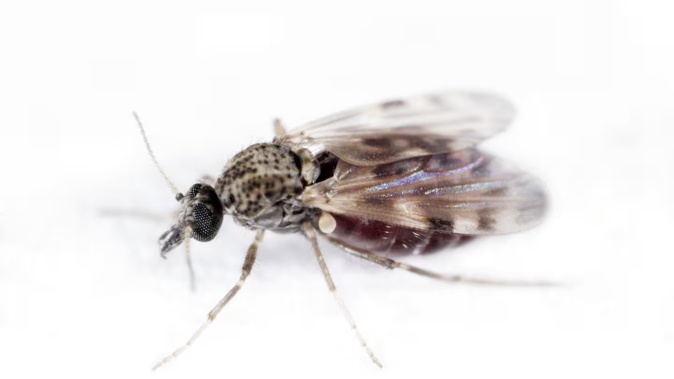
The United States Centres for Disease Control and Prevention is warning clinicians to be on the lookout for a viral disease that is spread by small flies and some types of mosquitoes, and that causes sudden fever, severe headaches, and chills.
Cases of Oropouche virus disease have been climbing in South America and the Caribbean in the past two years, and turned deadly for the first time this year.
The CDC advisory issued at the weekend NZT recommends that pregnant people reconsider non-essential travel to Cuba, which reported its first confirmed case in June.
Between January 1 and August 1, more than 8000 cases of Oropouche were reported in the Americas, the advisory said. That includes two deaths in Brazil this year in women who were otherwise healthy.
Transmission of the virus during pregnancy resulted in one fetal death, one miscarriage and four cases of newborns with microcephaly, a condition characterised by an abnormally small head.
“This was the first report of deaths and Oropouche virus [mother-to-baby] transmission and associated adverse birth outcomes,” the CDC said.
In the US and Europe this year, travellers returning from Cuba and Brazil have been diagnosed with the condition. Florida has reported 11 travel-related cases this year, according to the state health department.
No locally acquired Oropouche cases have been reported in the US.
No vaccines to prevent Oropouche or medicines to treat it exist. The best form of protection is avoiding bites from midges and mosquitoes, the CDC said.
The virus is endemic to the Amazon basin region and has been reported widely, including in Bolivia, Brazil, Colombia, Ecuador, French Guiana, Panama, and Peru. In late 2023, the virus caused large outbreaks in new areas in South America.
Oropouche virus is spread to people primarily by the bite of infected midges. Some mosquitoes can also spread the virus.
The disease typically starts with sudden fever, often with severe headache, chills, muscle and joint pain. Other signs and symptoms include extreme light sensitivity, dizziness, eye pain, nausea and vomiting, or a rash that starts on the torso and spreads.
Symptoms typically last less than a week. But in up to 60% of patients, symptoms can recur a few days or even weeks later.
In many countries, outbreaks of dengue are occurring in areas with reported Oropouche transmission. The CDC is urging clinicians to rule out dengue virus infection in patients with suspected Oropouche virus disease.
Take your Radio, Podcasts and Music with you









